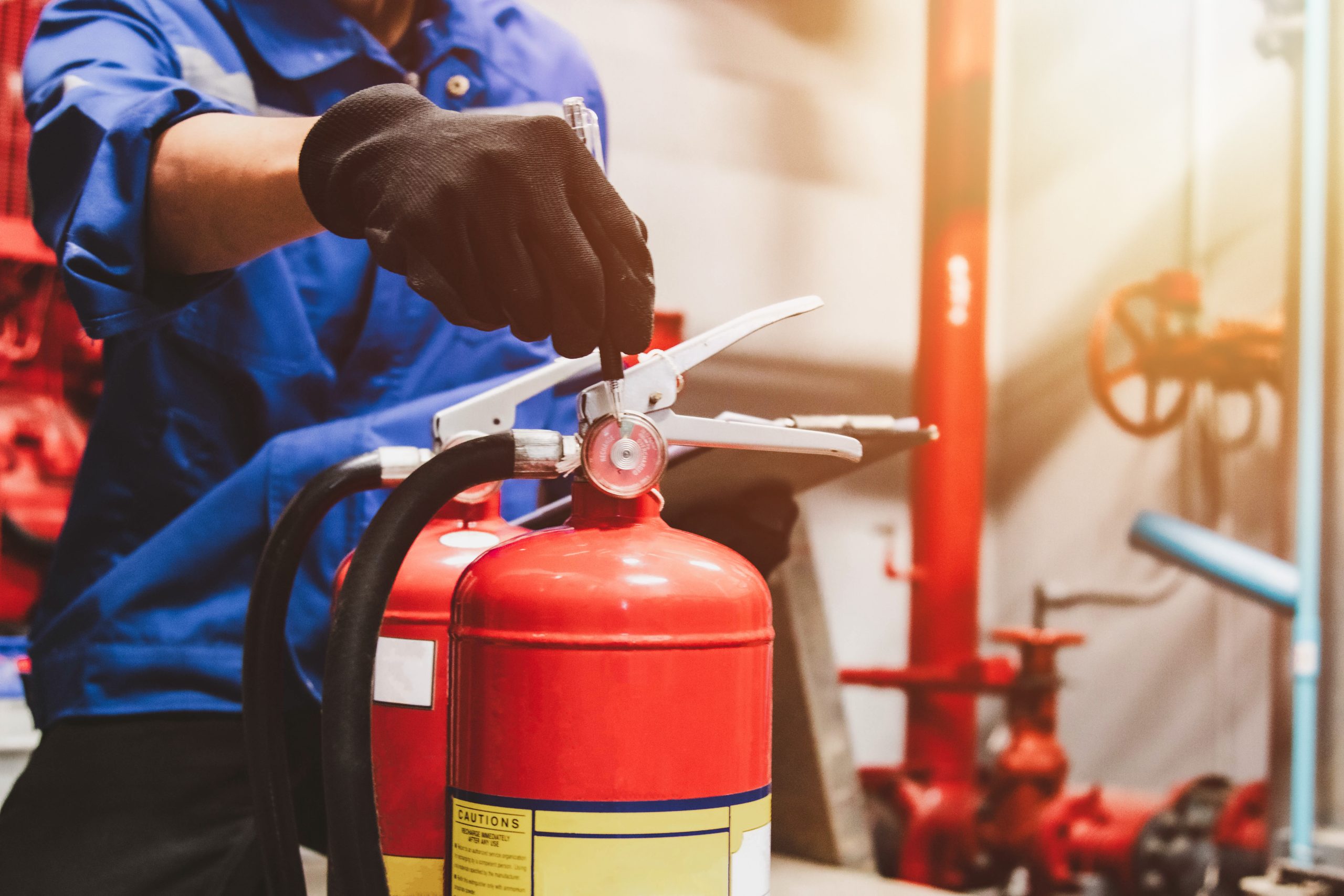A critical aspect in maintaining a secure, commercial environment is the regular inspection of fire suppression systems. Business owners must be proactive in scheduling and overseeing these inspections to guarantee that their fire protection components are in optimal working condition. This comprehensive guide outlines the key steps a business owner should take in scheduling inspection visits from their fire suppression company, along with recommendations on how often each fire protection component should be inspected.
Understanding the Components
Before delving into the inspection scheduling process, it’s important for business owners to understand the various components of their fire suppression system. Common elements include fire sprinklers, fire alarms, fire extinguishers, emergency lighting, and other specialized suppression systems depending on the business type. Each component plays a vital role in the overall safety and effectiveness of the system.
Establishing a Regular Inspection Schedule
The frequency of fire suppression system inspections varies based on the specific components. However, a general rule of thumb is to conduct routine inspections at least once a year. Some components may require more frequent checks, especially in high-risk environments or industries.
Fire Sprinkler Systems
Frequency: Fire sprinkler systems should undergo a comprehensive inspection at least annually.
Key Considerations: Inspections should include a thorough examination of all sprinkler heads, pipes, and control valves. Ensuring that sprinklers are free from obstructions, corrosion, and damage is crucial. Additionally, water flow tests should be conducted to verify the functionality of the system.
Fire Alarm Systems
Frequency: Fire alarm systems should be inspected annually, with additional tests conducted on a quarterly or semi-annual basis.
Key Considerations: Inspections involve checking all alarm components, including detectors, control panels, and notification devices. Testing the alarm’s response to smoke or heat and ensuring proper communication with monitoring services are essential tasks.
Fire Extinguishers
Frequency: Fire extinguishers require monthly visual inspections and a more thorough annual examination.
Key Considerations: Monthly inspections involve checking the extinguisher’s location, accessibility, and pressure gauge. Annual inspections include a detailed examination by a certified technician to ensure the extinguisher is in good working order.
Emergency Lighting Systems
Frequency: Emergency lighting systems should be inspected annually.
Key Considerations: Inspections cover the functionality of all emergency lights, including testing backup batteries and verifying that lights provide adequate illumination in case of power failure.
Specialized Suppression Systems
Frequency: Systems such as kitchen hood suppression systems or industrial suppression systems may require semi-annual or quarterly inspections, depending on the nature of the business.
Key Considerations: Specialized suppression systems should be inspected in accordance with manufacturer guidelines and applicable regulations. Regular maintenance is essential to ensure these systems are ready to respond to specific fire risks.
Selecting a Qualified Inspection Company
Choosing a qualified and reputable fire suppression system inspection company is paramount. Look for companies with experienced technicians who are certified to inspect and maintain various types of fire protection components. Verify their compliance with local regulations and standards, as adherence to these guidelines is crucial for the validity of inspections.
Fire Systems, Inc. has served the Atlanta area for almost 40 years, gaining extensive experience working with a wide range of industries and applications. When selecting a fire protection company, check reviews, ask about qualifications and credentials, and be sure the company has experience working in your specific area as local fire codes can affect frequency and type of inspections and requirements.
Documenting Inspection Results
Business owners should maintain detailed records of each inspection. This documentation serves as evidence of compliance with regulations, aids in identifying trends or recurring issues, and provides a valuable reference for future inspections.
Some fire protection companies, like Fire Systems, Inc., will keep track on your inspections for you. If you want to streamline this process, ask about documentation and tracking through your trusted fire protection company.
Scheduling Regular Training for Staff
In addition to professional inspections, business owners should invest in regular training for staff members on emergency response procedures, the operation of fire extinguishers, and the use of emergency exits. Well-trained employees can play a crucial role in mitigating the impact of a fire incident.
Fire Systems, Inc. offers free staff training for all customers. Look for fire protection companies that provide on-site fire extinguisher for your staff.
Fire Systems, Inc.
Ensuring the regular inspection of fire suppression systems is a fundamental responsibility for business owners committed to creating a safe and secure work environment. By understanding the components of the system, establishing a regular inspection schedule, and working with qualified inspection companies, business owners can mitigate fire risks and enhance overall safety. Regular inspections not only comply with regulatory requirements but also contribute to the peace of mind of all stakeholders, fostering a workplace culture centered on safety and well-being.
If you’re looking for a trusted, highly qualified fire protection company, contact Fire Systems, Inc. at 770-333-7979 or visit our website for a full listing of all the services we offer. We are an “all services” fire protection company, offering our customers fire suppression, sprinkler, alarm, and more, all from one company. Streamline the process and reduce the hassle of scheduling inspections and repairs by working with Fire Systems, Inc. We look forward to working with you.






